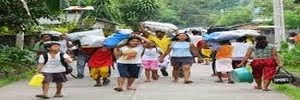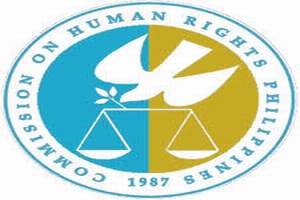From the Website of United Nations
links https://news.un.org/en/story/2024/07/1152716
Security Council debates ‘serious and dangerous escalation’ in the Middle East
“The international community must work together to prevent any actions that could make the conflict much bigger and wider very quickly,” Rosemary DiCarlo, UN Under-Secretary-General for political affairs said, warning of skyrocketing tensions in the wake of the killing of a top Hamas leader in Tehran earlier in the day.
The killing came against the backdrop of Israeli strikes against southern Beirut, following an apparent strike in a village in the Israeli-occupied Golan, and intense exchanges across the Blue Line, which separates Israeli and Lebanese armed forces.
The incidents claimed several lives, including those of children.
Serious and dangerous escalation
“The various attacks over the past few days represent a serious and dangerous escalation,” she continued, highlighting the ongoing war in Gaza, which erupted following the brutal 7 October attack by Hamas and other Palestinian armed groups in southern Israel.
Over 1,200 Israelis were killed and over 200 were taken hostage. Dozens among them still remain in captivity.
In the Gaza Strip, more than 38,000 Palestinians are reported to have been killed as a result of Israel’s military operation, a further 88,000 injured and about 90 per cent of the population displaced – many several times.
Effective diplomatic action needed
Ms. DiCarlo reiterated UN Secretary-General António Guterres’ call for “maximum restraint by all”, stressing that “restraint alone is insufficient at this extremely sensitive time.”
“Diplomatic
efforts to change the trajectory and seek a path toward regional peace
and stability are urgently needed,” she underscored.
“Communication by means of missiles, armed drones and other deadly attacks must end.”
She
appealed to the international community to work together to prevent
“any actions that could make the conflict much bigger and wider very
quickly”.
“We need swift and effective diplomatic action for
regional de-escalation. This Council plays a crucial role in this
regard. The time is now,” she concluded.
Council members urge actors to act with restraint
Following the briefing, Security Council
members emphasized the urgent need for de-escalation, ceasefire and
diplomatic efforts to prevent further escalation of the conflict in the
region. They also highlighted the impact on civilians, especially on
women and children who are bearing the brunt of the fighting, as well as
on humanitarians and journalists.
Algerian Ambassador and
Permanent Representative Amar Bendjama condemned the assassination of
Hamas leader Ismail Haniyeh by Israel as “not merely an attack on one
man” but “a vicious assault on the very foundations of diplomatic
relations, the sanctity of State sovereignty and the principles that
underpin our global order”. He called for full accountability for
Israel’s “heinous war crimes” and “egregious human rights violations”.
United
States Ambassador Robert Wood and Deputy Permanent Representative,
underscored Israel’s right to self-defence, stating that his country was
not involved in the strikes on Lebanon or in the apparent death of
Hamas leader Ismail Haniyeh. He urged Council members with direct
influence over Iran to increase pressure on the country to stop
escalating its proxy conflict against Israel and other actors.
Iran: The killing is an act of terror
Amir
Saeid Iravani, Ambassador and Permanent Representative of Iran to the
UN, said that his country called for the emergency Council meeting “to
address a matter of grave importance of urgency.”
He denounced
the “cowardly assassination…by Israel” of Ismail Haniyeh, the top Hamas
political official, who was on an official visit to Iran, upon
invitation of the Government, to attend the inauguration of the new
Iranian President.
“This act of terror is another manifestation
of Israel’s decades-long pattern of terrorism and sabotage targeting
Palestinians and other supporters of the Palestinian cause across the
region and beyond,” he said.
In addition to its terrorist
objective, Israel was also pursuing political goals, aiming to disrupt
the first day of the new Government of Iran that has prioritized peace
and stability in the region, he alleged.
He strongly condemned the “horrible act” as the most serious violation of international law and the UN Charter, urging “immediate and effective action” by the Security Council.
Palestine: Grave breaches of international law
Feda
Abdelhady, Deputy Permanent Observer of Palestine to the UN, said that
it had been nearly 300 days since the start of Israel’s war in Gaza,
which has “gravely breached all tenets of international law” and
flagrantly violated the UN Charter.
“A war that threatens
international peace and security. Yet, Israel is being permitted to wage
this war in broad daylight, with no restraints and no consequences,”
she said, adding that “every day brings more horrors, losses and
suffering for our people as Israeli occupying forces murder Palestinian
children, women and men.”
Ms. Abdelhady “unequivocally condemned”
the breach of the territorial integrity and sovereignty of Iran as well
as of Lebanon, Syria and Yemen, by Israel.
“We call once again
with utmost urgency on the Security Council, the General Assembly and
all law-abiding, peace-loving nations to act forthwith to bring a halt
to these horrific, criminal Israeli aggressions against the Palestinian
people and on our region,” she said.
Israel: ‘Hypocrisy’ on display today
Israeli
Ambassador and Deputy Permanent Representative Brett Jonathan Miller
began his remarks by stressing what he called “the rank hypocrisy on
display here today” as the meeting was called by “the world’s number one
sponsor of terrorism”.
He said Iran has used its proxies - Hamas, the Houthis and Hezbollah - to target Israel and its citizens from every direction.
Mr.
Miller asked where were the condemnations of Hezbollah and their
Iranian suppliers for the butchery of the 12 children in Majdal Shams.
“All
that was heard were expressions of concern for escalation and calling
for both sides –again equating a democratic Member State of the United
Nations with a vicious terrorist organization - to show restraint,” he
said.
He told the Council that those who really seek stability in
the region should welcome the removal of arch terrorists and not call
on both sides to restrain themselves.
Syria: Serious crime committed in the Golan
Syrian
Ambassador and Permanent Representative Koussay Aldahhak said the
Israeli occupying entity “had committed a grave crime” in Majdal Shams
that led to the death of 12 children in Israeli-occupied Golan Heights,
which “is and always has been” Syrian territory.
Reiterating that
fellow citizens in the occupied-Syrian Golan have always been part of
Syria, he said they call for Israeli practices against them to end. An
occupying power cannot claim that they are defending themselves under
Article 51 of the UN Charter, he stressed.
Syria condemns Israeli
aggression on States in the region, including the assassination of Mr.
Haniyeh in Iran and the killing of citizens in Lebanon. Meanwhile,
Israel is committing genocide in Gaza.
“The war criminals in
Israel would not be able to continue without support,” he said, calling
on the Council to immediately put an end to these crimes and ensure
accountability.
Lebanon: We do not want war
Lebanese
Ambassador and Permanent Representative Hadi Hachem said his country
and its people “do not want war”, adding that Beirut has presented a
roadmap to ensure security and break the cycle of violence, but has not
yet received a response.
At the same time, Israel’s attack on the
capital had resulted in deaths and injuries, he said, adding that such
an act demonstrates its true intentions. In the same vein, Israel’s
killing today of two journalists show a pattern of targeting media.
Ending Israel’s occupation of Arab lands is essential if the region is to return to calm and stability, he said.
That
requires good faith, he continued, however, Israel’s behaviour
demonstrates otherwise and its claims of self-defence in occupied
territories are not valid.
“History will spare no one; what
starts in the Middle East will spread to the whole world,” he warned,
calling on the Council to take a stand “before it is too late”.



























































0 comments:
Post a Comment